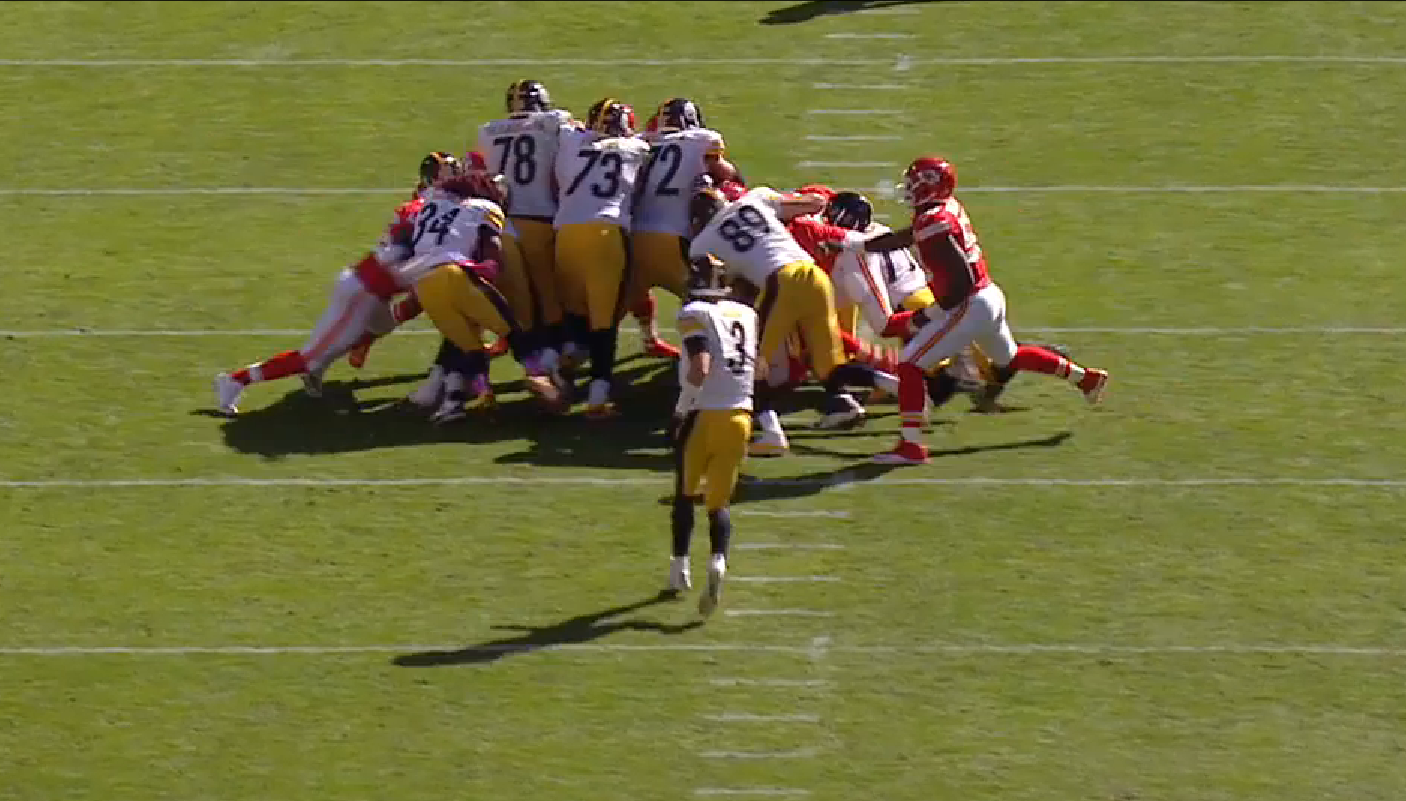The Pittsburgh Steelers signed veteran running back DeAngelo Williams primarily due to the fact that they believed he would serve as a solid starter during the early portion of the season while Le’Veon Bell served his suspension. He fulfilled his duties in that respect quite well.
Ever since, however, Todd Haley and the offense have found it difficult to find him snaps, let alone a role, largely due to the fact that, as Haley has said, when you have a back the quality of Bell, it’s hard to take him off the field.
Perhaps that was the origin of Williams’ usage as a short-yardage back on Sunday against the Chiefs, the logic of which I am as of yet unable to sort out.
To be clear, there is no basis upon which to object to the notion of giving Willliams some playing time. Nor are there any grounds upon which it should be argued that there cannot be a role carved out for the experienced and accomplished runner.
But to attempt to define him as a short-yardage specialist, and to do so at the expense of Bell? The logic pathway taken to reach this conclusion is obscured, to say the least. Perhaps the coaching staff was merely sold on the notion following Williams’ three touchdown runs in short-yardage situations during the season game of the season.
Williams was given five snaps during the first half of the road game in Kansas City, all of which took place on third or fourth down with two yards or less to go. His first rushing attempt on third and one was successful for a six-yard gain. Later, he received two attempts to gain one yard on third and fourth down, gaining three yards on fourth down.
Later on the drive, Williams was put back on the field on third and two near the goal line, targeted on a pass from Landry Jones. He dropped the pass, which, had he fielded it cleanly, likely would have resulted in a touchdown, or at least a first and goal from inside the two-yard line.
Later, toward the end of the first half, Williams got another opportunity on third and one to run the ball, trying to find room up the left side of the offensive line, but the Chiefs had successfully clogged the running lanes, and the play failed.
On all of these plays, they are the only instances in which Williams was on the field, replacing Bell, who had been playing during that series up to that point, only to be taken off the field in order for the veteran to command the short-yardage offense.
Whether or not Williams found success in those instances is irrelevant. There is no prior history in his resume that suggests to anybody that he has a particular skill set that might make him a superior option in short-yardage situations to Bell, whose direct-snap one-yard touchdown with time expiring against the Chargers two weeks earlier—his third straight game with a goal line rushing touchdown—should have earned him more chances, rather than taking them away.
Williams deserves to have a role in the offense, if one can be found, but there is no solid logical basis upon which to make that role that of short-yardage specialist.








